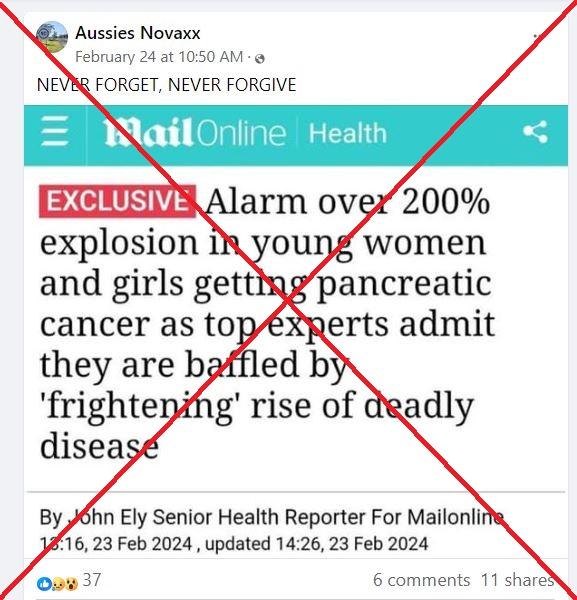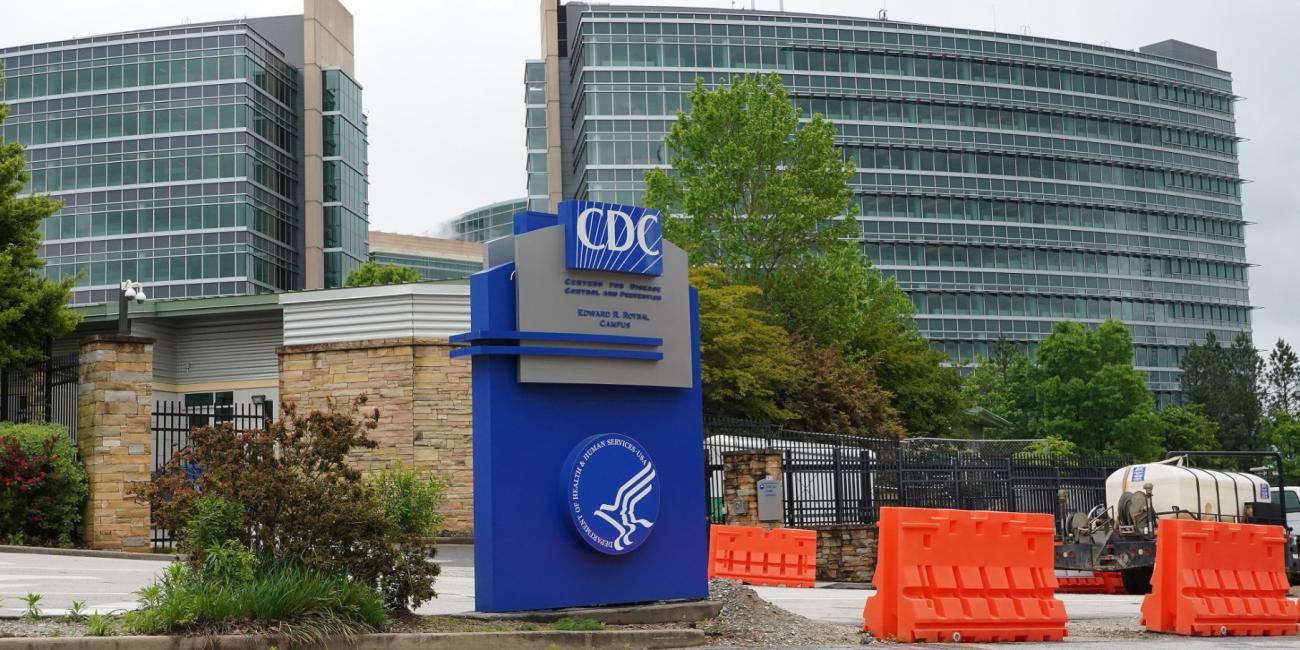
Pre-pandemic cancer cases falsely linked to Covid-19 vaccines
- This article is more than one year old.
- Published on March 13, 2024 at 06:04
- 2 min read
- By Kate TAN, AFP Australia
A Facebook page called "Aussies Novaxx" posted a screenshot of the MailOnline article from February 23, which is headlined: "Alarm over 200% explosion in young women and girls getting pancreatic cancer as top experts admit they are baffled by 'frightening' rise of deadly disease" (archived link).
'Novaxx' appears to refer to tennis superstar Novak Djokovic, who was deported by Australia in January 2022 over his lack of a Covid-19 vaccine (archived link).
"NEVER FORGET, NEVER FORGIVE," the Facebook post wrote, prompting comments that questioned the safety of Covid-19 vaccines.
The account has previously spread Covid-19 vaccine misinformation, including false claims that the jabs could slash a person's life expectancy by 24 years.
Health authorities say the benefits of Covid-19 vaccination far outweigh potential risks (archived link).

The article was shared in similar Facebook posts, including in Australia and the United States, that said it showed a link between Covid-19 vaccines and cancer.
However, the MailOnline article in fact reported that the surge in pancreatic cancer cases was recorded between 1993 and 2018. This was before the pandemic and subsequent roll-out of Covid-19 vaccines.
"Anti-vaxx theories that Covid jabs are behind a rise in cancer incidences have not been proven," it said.
Pre-pandemic figures
The article shares figures from Cancer Research UK, which showed a 208 percent increase in the number of women under 25 diagnosed with pancreatic cancer from 1993 to 2018 (archived link).
Pancreatic cancer typically affects older people. A spokesperson from Cancer Research UK said the percentage increase in young women diagnosed with the condition was so dramatic because the overall number of diagnoses in this demographic was incredibly small.
"The number of women under 25 who were diagnosed with pancreatic cancer in the 1990s was 0.0 per 100,000, and today that number is 0.1 per 100,000," he told AFP.
Nicola Smith, senior health information manager at Cancer Research UK, said it was not clear what was driving the increase.
"We do know that smoking or being overweight can increase people's risk of developing the disease," she told AFP.
"There is no good evidence of a link between the Covid-19 vaccine and cancer risk. The vaccine has been deemed a safe and effective way to protect against Covid-19 infection or developing serious symptoms."
Justin Stebbing, a professor of biomedical sciences at Britain's Anglia Ruskin University, said that while the increase in pancreatic cancer diagnoses in young women was concerning, there was no evidence of a link to Covid-19 vaccines.
"There's no basis in science or reality to suggest Covid-19 shots would or could play a role," he told AFP.
In November 2022, Britain's National Health Service (NHS) reported there were more patients diagnosed with cancer at an earlier stage than ever before, following a drop in people getting themselves checked during the pandemic (archived link).
There was a large fall in reported cancer diagnoses in 2020 as the pandemic "had an impact on cancer testing and diagnostic services", according to a UK parliamentary report (archived link).
AFP has previously debunked misinformation around Covid-19 vaccines and cancer.
Copyright © AFP 2017-2026. Any commercial use of this content requires a subscription. Click here to find out more.
Is there content that you would like AFP to fact-check? Get in touch.
Contact us




